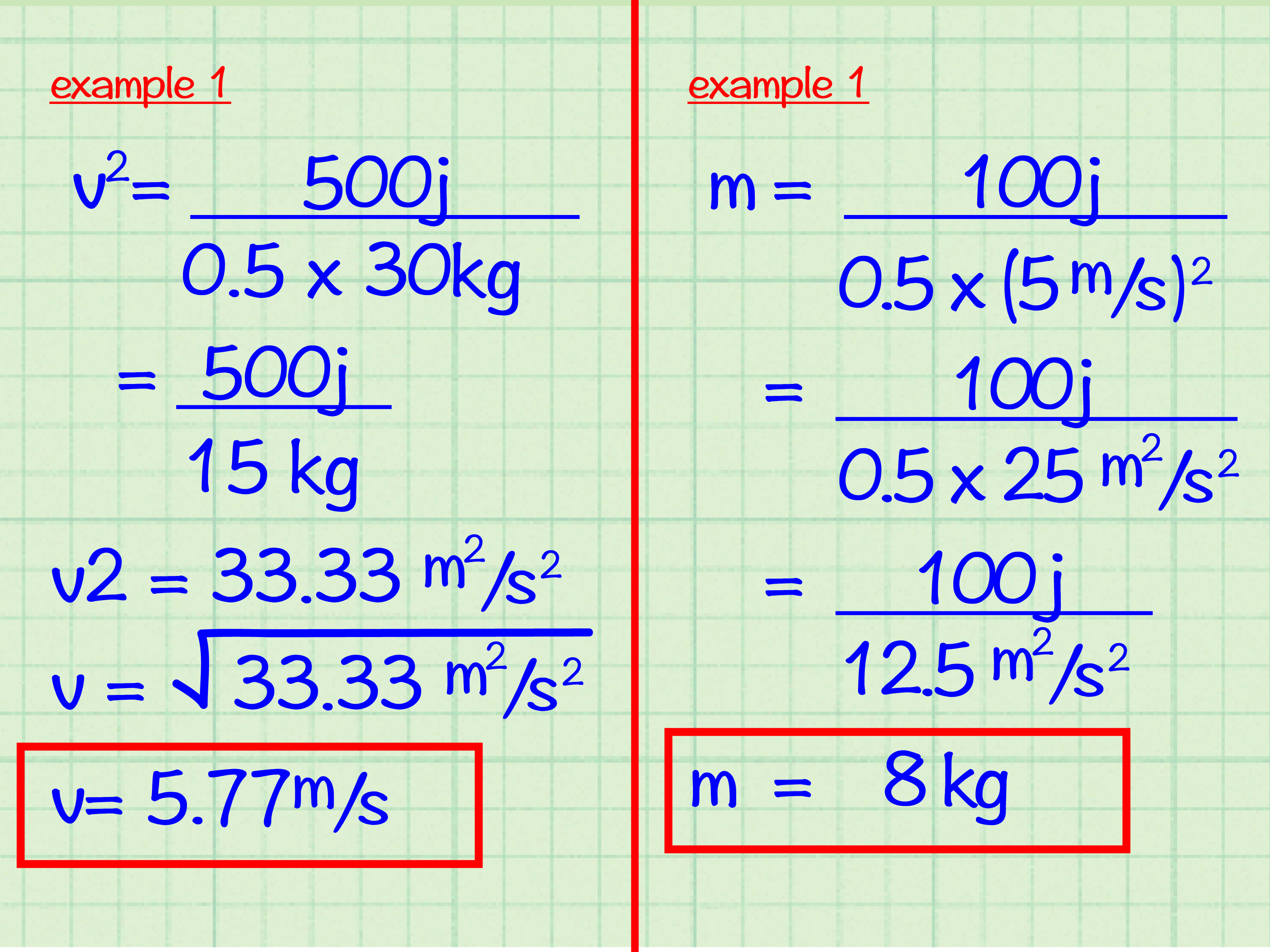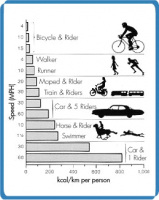Well I’m afraid you are incorrect in this instance. I suggest you brush up on your Physics.
There are two basic forms of energy: potential and kinetic energy. Potential energy is the energy an object has relative to the position of another object. For example, if you are at the top of a hill, you have more potential energy than...

www.wikihow.com
Pedestrian verses Cyclist + Bicycle, over the same distance will expend differing amounts of energy, even if travelling at the same speed. As Human metabolism has CO2 as one of its by-products the Cyclist will always expend more energy as he would have the grater mass and hence more CO2.
eg.
Kinetic Energy = 0.5 x (Mass M x Velocity V^2)
Pedestrian = Mass M
Cyclist + bicycle = Mass M + B
And the faster the cyclist goes then V gets larger As Velocity is a function of Distance over Time.
So unless you are going to use some alternative Universe physics Cyclists are more polluting than Pedestrians.


















